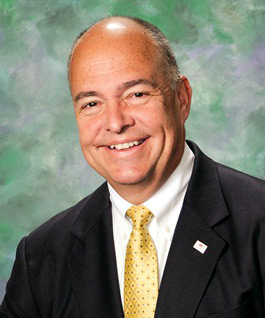 Washington, D.C. — The American Bus Association (ABA) has expressed its disappointment in the recently released House Transportation & Infrastructure Committee’s new “Discussion Draft” for an infrastructure legislative proposal.
Washington, D.C. — The American Bus Association (ABA) has expressed its disappointment in the recently released House Transportation & Infrastructure Committee’s new “Discussion Draft” for an infrastructure legislative proposal.
Key aspects of the draft propose to eliminate the current 17-cent partial fuel tax exemption relied upon by the industry while also raising the gas tax by 20 cents for an overall increase of 37 cents/gallon.
In response to this, ABA President & CEO Peter Pantuso said: “The motorcoach industry, like everyone else, recognizes the necessity to update our aging infrastructure to keep America and our economy moving. However, we are extremely disappointed that this proposal would target the diesel fuel tax exemption and at the same time raise the gas tax on our industry—it’s a double hit, increasing our tax burden by nearly 40 cents. This comes at a time when the motorcoach industry faces challenges and most importantly fails to recognize that motorcoaches reduce congestion and air pollution, by taking as many as 50 people out of their cars and provide travel to populations that often have limited options and at an affordable price.”
 ABA President & CEO Peter Pantuso Currently, motorcoach operators are eligible to obtain only a partial refund from the 24.4 cent/gallon diesel fuel tax paid at the pump; however, under Chairman Bill Shuster’s (R-Pa.) proposal, this eligibility would be eliminated, while at the same time the current tax rate would increase by 20 cents over three years.
ABA President & CEO Peter Pantuso Currently, motorcoach operators are eligible to obtain only a partial refund from the 24.4 cent/gallon diesel fuel tax paid at the pump; however, under Chairman Bill Shuster’s (R-Pa.) proposal, this eligibility would be eliminated, while at the same time the current tax rate would increase by 20 cents over three years.
In effect, this means a 37-cent increase for the motorcoach industry, an industry dominated by small businesses who rely on the tax refund to offset high fuel costs.
“I’m not entirely sure why the Chairman chose this course when our industry provides the most economical form of public transportation for so many travelers, commuters and students, alike,” said Pantuso. “The impact of this kind of increase cannot easily be borne by our industry, and rural communities, the elderly and minorities who travel on motorcoaches will be particularly hard hit.”
The motorcoach industry provides charter and scheduled service to the traveling public, including commuter operations, tour and travel opportunities, service to large scale events, student travel, public transit support and other services, in addition to serving as a vital link connecting rural communities to larger transportation hubs.
“We believe this is a misguided approach to solving the infrastructure funding issue,” Pantuso said. “If this proposal is enacted, it will hurt not only the motorcoach industry, it will have a lasting adverse effect on the entire transportation system by reducing capacity and limiting options for some of our most economically challenged communities.”
Visit buses.org for more information.
[CD0718]
ABA Expresses Disappointment in Infrastructure Proposal
- Details
- Category: Industry News

